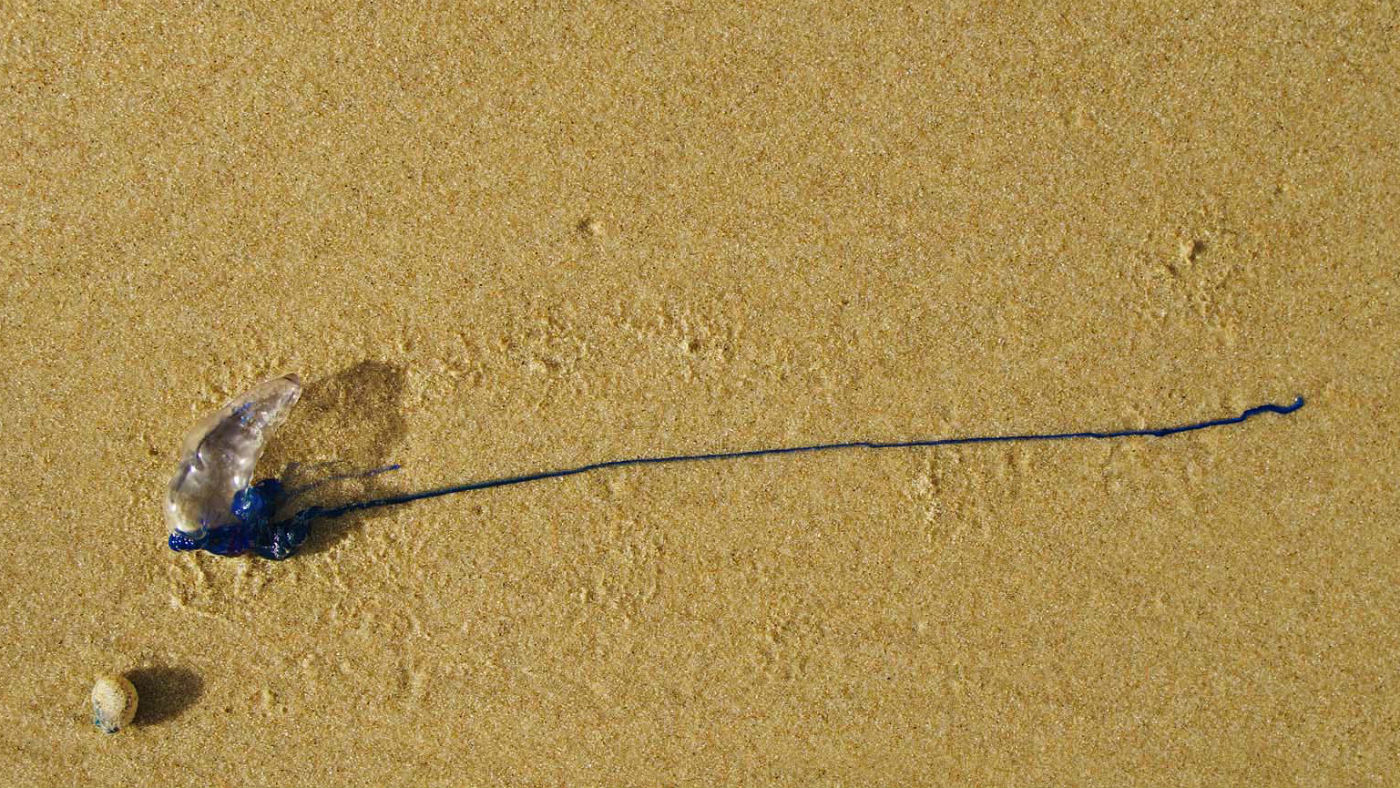Thousands stung as jellyfish invade Australian beaches
More than 5,000 people stung along Sunshine Coast and Gold Coast beaches

A free daily email with the biggest news stories of the day – and the best features from TheWeek.com
You are now subscribed
Your newsletter sign-up was successful
At least 5,000 people have been stung by a “wall” of jellyfish along the coast of Queensland over the weekend, in what has been described as an unprecedented incident.
Popular beaches along the Sunshine Coast and the Gold Coast have been closed off after unusually strong swells drove thousands of small but potent bluebottle jellyfish - also known as the Indo-Pacific Portuguese man-of-war - onto the shoreline.
On Sunday alone, close to 1,000 people required medical treatment for bluebottle stings, in what Surf Life Saving duty officer Jeremy Sturges described as an “epidemic”.
The Week
Escape your echo chamber. Get the facts behind the news, plus analysis from multiple perspectives.

Sign up for The Week's Free Newsletters
From our morning news briefing to a weekly Good News Newsletter, get the best of The Week delivered directly to your inbox.
From our morning news briefing to a weekly Good News Newsletter, get the best of The Week delivered directly to your inbox.
“I have never seen anything like this - ever,” he told SBS, adding that many of the jellyfish had ended up beached on the shore, meaning swimmers were not the only ones at risk.
“People have been hurt as they just walk along the shoreline,” he said. “Don’t pick it up, don’t walk on it or you will be stung.”
Bluebottle stings cause intense pain for up to an hour, and can leave behind an itchy or tender red mark, says Australian medical advice website My Dr.
They are not usually dangerous, but several bathers have been treated for anaphylactic shock after suffering an allergic reaction to the stings.
A free daily email with the biggest news stories of the day – and the best features from TheWeek.com
The “wall” of jellyfish has begun to disperse, but paramedics and lifeguards still treated more than 200 sting victims today, mostly on the Sunshine Coast.
Since the beginning of December, “22,282 people sought treatment for bluebottle stings”, the Australian Associated Press reports, more than three times the rate in the same period last year.
The estimate was greeted with surprise by Lisa-ann Gershwin, director of the Australian Marine Stinger Advisory Service.
“Wow, that is unusual,” she told the Australian AP. “The numbers I have seen published are 25,000 to 45,000 per year for the whole of Australia.
“Those figures, the 22,282, are for about five weeks and that’s just one teeny tiny smidgen of Australia, so that is a lot.”
-
 The ‘ravenous’ demand for Cornish minerals
The ‘ravenous’ demand for Cornish mineralsUnder the Radar Growing need for critical minerals to power tech has intensified ‘appetite’ for lithium, which could be a ‘huge boon’ for local economy
-
 Why are election experts taking Trump’s midterm threats seriously?
Why are election experts taking Trump’s midterm threats seriously?IN THE SPOTLIGHT As the president muses about polling place deployments and a centralized electoral system aimed at one-party control, lawmakers are taking this administration at its word
-
 ‘Restaurateurs have become millionaires’
‘Restaurateurs have become millionaires’Instant Opinion Opinion, comment and editorials of the day
-
 Epstein files topple law CEO, roil UK government
Epstein files topple law CEO, roil UK governmentSpeed Read Peter Mandelson, Britain’s former ambassador to the US, is caught up in the scandal
-
 Iran and US prepare to meet after skirmishes
Iran and US prepare to meet after skirmishesSpeed Read The incident comes amid heightened tensions in the Middle East
-
 Israel retrieves final hostage’s body from Gaza
Israel retrieves final hostage’s body from GazaSpeed Read The 24-year-old police officer was killed during the initial Hamas attack
-
 China’s Xi targets top general in growing purge
China’s Xi targets top general in growing purgeSpeed Read Zhang Youxia is being investigated over ‘grave violations’ of the law
-
 Panama and Canada are negotiating over a crucial copper mine
Panama and Canada are negotiating over a crucial copper mineIn the Spotlight Panama is set to make a final decision on the mine this summer
-
 Why Greenland’s natural resources are nearly impossible to mine
Why Greenland’s natural resources are nearly impossible to mineThe Explainer The country’s natural landscape makes the task extremely difficult
-
 Iran cuts internet as protests escalate
Iran cuts internet as protests escalateSpeed Reada Government buildings across the country have been set on fire
-
 US nabs ‘shadow’ tanker claimed by Russia
US nabs ‘shadow’ tanker claimed by RussiaSpeed Read The ship was one of two vessels seized by the US military